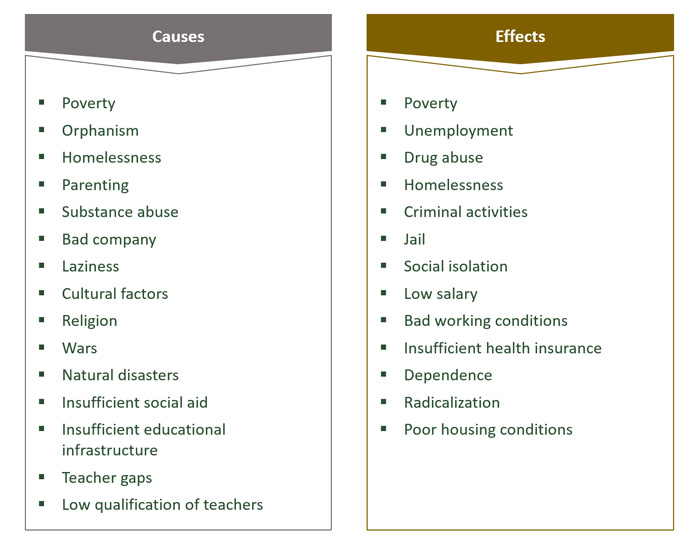
Welcome back to this series on our fantasy enmeshed realities.
In the first article of the series I introduced you to the concepts of fantasy and reality, laid the groundwork for discussing how fantasy can mislead us, and illustrated a few foundational factors that contribute to misinformed or delusional thinking.
This article will cover a few more foundational factors including addiction, lacking of education & critical thinking skills, and unhealthy diet & physical care.
Let’s get started then.
Addictions
According to the American Psychiatric Association, “Addiction is a complex condition, a brain disease that is manifested by compulsive [behavior] despite harmful consequence.”1
The impacts of addiction can vary based upon what one is addicted to, but the harmful effects on physical and mental health can be profound regardless.
Drug abuse is probably at the forefront of the addiction conversation. With regard to prolonged persistent cocaine use, Drugabuse.gov states “Users take cocaine in binges, in which cocaine is used repeatedly and at increasingly higher doses. This can lead to increased irritability, restlessness, panic attacks, paranoia, and even a full-blown psychosis, in which the individual loses touch with reality and experiences… hallucinations.”2,3,4,5
Such mental and physical issues are common with a variety of other SCHEDULE 1 (CLASS 1) DRUGS, when abused over the long-term, or even if used heavily in the short-term. They can be permanently life (and perception) altering.
Another addiction that comes to mind, predominately because it’s NOT NEARLY as stigmatized as other abuses, is sex addiction.
Dr. Michael Herkov, Board-Certified clinician in Clinical Psychology and Neuropsychology, points out, “The National Council on Sexual Addiction and Compulsivity has defined sexual addiction as ‘engaging in persistent and escalating patterns of sexual behavior acted out despite increasing negative consequences to self and others.’ In other words, a sex addict will continue to engage in certain sexual behaviors despite facing potential health risks, financial problems, shattered relationships or even arrest… The Diagnostic and Statistical Manual of Psychiatric Disorders describes sex addiction as ‘distress about a pattern of repeated sexual relationships involving a succession of lovers who are experienced by the individual only as things to be used.”6
Addiction can be so tied to our biological and mental drives that it may be difficult, even for the outside observer, to see the problem.
Without taking drastic steps toward recovery, addicts will continue to spiral down self-destructive paths as their realities become further distorted by their dependencies.
Beyond the actual addictions themselves, there are traits which are exhibited by people with addiction prone personalities that can feed delusions on their own.
The American Addiction Centers identifies the following “Traits of People with High Risk of Developing Addiction”7:
- Related to others who have developed addiction
- Experiencing other mental health disorders
- Adventurous and risk-taking
- Disconnected and cautious
- Obsessive and compulsive
- Apathetic
- Unable to self-regulate
The consequences of addiction are not nearly limited to the individual who is addicted. Addicts woefully inhibit, and frequently destroy, the health and livelihood of close family and friends. While abusing themselves they victimize others in their paths, often without any recognition of the damage their doing… Chasing an escape, or rather, a fantasy.
The bottom line… addictions can render us less likely to have the necessary tools needed to efficiently navigate reality. They feed fantasy.
Lacking of Education & Critical Thinking Skills
Education is not just about getting a diploma or a degree. In fact, it doesn’t even take a diploma or a degree to be a well-educated person. Education is a lifelong process of accumulating knowledge, building wisdom, and enriching our perspectives through experience.
The following chart from the Environmental Conscience blog provides a good jumping off point to begin the discussion about how education is imperative to our perceptions of reality.
 8
8This chart illustrates Causes and Effects of poor education. So what does it reveal?
In short… A self-perpetuating cycle that feeds itself generation after generation:
- Poverty leads to Poverty
- Homelessness leads to Homelessness
- Abuse leads to Abuse
- Poor education, all too frequently, leads to poor Education
- … and so on
Insufficient education frequently places those who face it in the perspective of a victim, much like those who have been subjected to poor upbringing, as discussed in the first article of this series.
An aside on Victim Mentality:
Since we’re introducing victimization into the discussion throughout this article, I’d like to interject with this…
Dr. Judith Orloff, board-certified psychiatrist, suggests an individual with a “Victim Mentality” has “a poor-me attitude and is allergic to taking responsibility for their actions. People are always against them, the reason for their unhappiness.”930
For those who may construe a discussion on Victim Mentality as Victim Blaming, please understand this…
Victim Mentality is very real mental state expressed by those who constantly portray and defend themselves as a victim. And most often they absolutely are victims. This is important to understand… It’s education.
Victim Blaming “occurs when the victim of a crime or any wrongful act is held entirely or partially at fault for the harm that befell them.”10
Finger pointing has NO place in a discussion about humanitarianism, or resolving human issues. We can heal, or perhaps even cure, Victim Mentality by stemming the victimization before it starts. This is one of the reasons I choose to write.
We all have a stake in the solution!
We live in a world overflowing with victims of our own creation, yet we use most of our energy fighting against one another and stressing out over mounting piles of our own half-assed messes… all in a childish display of self-righteousness and ego. How do we break that cycle?!
Perhaps the most worrisome issue exhibited by victims of poor education is underdeveloped and/or atrophied[def] critical thinking skills.
“Critical Thinking is the analysis of facts to form a judgment. Critical thinking is self-directed, self-disciplined, self-monitored, and self-corrective thinking. It presupposes assent to rigorous standards of excellence and mindful command of their use. It entails effective communication and problem-solving abilities as well as a commitment to overcome native[def] egocentrism and sociocentrism.”11
In short… Critical Thinking is the objective, or rather unbiased, analysis and evaluation of an issue in order to make an educated judgment.
So where’s the problem?... Follow the trail of poor education and you’ll find a flourishing garden of poor critical thinking skills.
In their article 7 Poor Thinking Habits We Must Fix to Think More Critically, Wabisabi Learning offers the following poor thinking habits12:
- Jumping to Conclusions
- Making Assumptions
- Negative Thinking
- Losing Track of Our Purpose
- Accepting False or Inaccurate Information
- Thinking One-Sidedly
- Ignoring Our Own Ignorance
To complicate things further, even our educational institutions are placing students at risk of missing the mark on nurturing critical thinking skills.
Regarding the role of educational institutions in developing critical thinking amongst students, Psychology Today’s Dr. Stephen Camarata, Professor of Hearing & Speech Sciences and Psychiatry & Behavioral Sciences at Vanderbilt University says, “There are emerging reports that although modern students are quite adept at memorizing and regurgitating facts presented in class or in reading materials, the ability to reason, think critically, and problem solve has actually been dramatically reduced in recent years… ‘On average, students make strides in their ability to reason, but because so many start at such a [critical thinking] deficit, many still graduate without the ability to read a scatterplot, construct a cohesive argument or identify a logical fallacy.’”13
Author and educator Joe David offers suggestions as to why educational institutions have slipped in teaching critical thinking skills14:
- We are…
- Promoting students who haven’t first mastered primary skills
- Deluding the value of important subjects that sharpen thinking skills and deepen understanding (like math, science, history, logic, and language)
- Grouping students [with varying learning styles] in a class heterogeneously[def], not homogeneously[def] in order to make it harder for teachers to teach
- Coddling students and stroking their self-esteem while ignoring their education
- And giving students the power to compromise teachers who dare to challenge them.
If our educational institutions are falling short on teaching such skills to even the average student, it’s a sign of a huge systemic failure.
The constant demands of the information age further compound our critical thinking calamity… Screens, Computers, Social Media, News, Fake News, and the list goes on and on. School-aged children are constantly being bombarded with distractions, and are missing out on developing imperative life skills.
Critical thinking is exceptionally important in our interpretation of reality because it helps us discern fact from fiction and identify deceitful rhetoric. If we don’t do things to improve critical thinking skills in the United States, and worldwide, then the powers that be will continue driving social narratives which keep people divided.
Yep… There’s a crisis of very successful, wealthy, powerful people thinking they are, and subsequently purporting to be, well educated.
There are people running around out there with Bachelor’s degrees, Master’s degrees, and even Doctorate’s who may be well-versed in a particular subject, but are mentally blind or ignorant to everything else.
Just because people can use their words in a way that sounds palatable, even inspirational, doesn’t mean their influence is merited. This is particularly the case when preaching about something that is not in their wheelhouse… and especially in cases where said influencers will manipulate and undermine the health and security of other people for the sake propagating their own agendas and personal gain.
The issue grows exceedingly worse when influencers like these draw followers from poorly educated circles who look up to them because of their “successes.” Such followers will most often take the words and actions of the “successful” idols at face value, without question, and with completely blind allegiance. Possibly the most extreme example of this is a cult… or North Korea. Anyway, it’s just another form of victimization.
Part of being well educated is recognizing others who are well educated, AND identifying the difference between an influencer who works selflessly vs an influencer who works in their own self-interest.
Buying into deceitful rhetoric is buying into fantasy.
We’ll begin the discussion about the pull of influencers in the next article, so stay tuned.
Finally we need to acknowledge that, if someone has a lack of education, it is not a mark against their intelligence or capacity to think. It IS, however, a sign that one’s intelligence is uncultivated and ignorance is the prevailing driver in their perception. Stupid actions generally don’t make a stupid person. Ill-informed people do stupid things. There’s rarely a moment of hopelessness because learning is a process that can begin to enrich anyone’s life at any time, so long as we choose to embrace it.
The bottom line… a lack of education and critical thinking skills can render us less likely to have the necessary tools needed to efficiently navigate reality. It feeds fantasy.
Unhealthy diet & physical care
This one may seem obvious, but I dare say proper personal health is probably lacking for most people in the US, let alone the rest of the world. Good health is exceptionally important in maintaining a balanced worldview, so it deserves mention.
Unhealthy diet & physical care are tied into a self-perpetuating loop with mental health. Over consumption of processed foods, stress and binge eating, and other eating disorders are all symptomatic of mental health concerns, and inversely, they exacerbate mental health disorders.
This alone could stand as a singular illustration of how unhealthy diet and physical care can contribute to distorted perspectives, but there’s one more side of this issue I want to highlight.
Societal expectations and pressures around physical attractiveness and prowess have launched billion dollar industries, promising consumers unrealistic results.
Fad diets and workouts can be great, but they can also get in the way of progress by placing spatial limitations, financial obligations, and potentially damaging demands on consumers, particularly when said consumers are not well educated on what they’re getting into.
Routines like Cross Fit have caused serious injury to novices and experts alike. Over a million lifters and athletes abuse steroids in the US alone.15 Fitness fanatics often overtrain, exceeding “their body’s ability to recover from strenuous exercise.”16 Boxers and football players deal with Chronic Traumatic Encephalopathy (CTE) after years of heavy hitting on the brain. Silicon and botox are bulging out of everything people can implant or inject them into. The internet is chalk full of self-proclaimed “models.” People obsess about their looks, and judge the looks of others to a sickening degree. I could go on and on, but why?!
Deriving the majority of one’s self-worth from physical attractiveness or prowess is a mental disorder in and of itself. It’s essentially just another addiction masked under a veil of health… Chasing a fantasy.
There’s a bunch more that could be discussed with regard to personal wellness and its importance in our everyday lives, like the benefits of a well-balanced diet and regular physical activity, but you’ve heard all that before and I think I’ve made my point… Poor diet and physical health can render us less likely to have the necessary tools needed to efficiently navigate reality. They feed fantasy.
To wrap up this segment…
So far in the series we’ve predominately focused on six foundational elements that can cause us to develop distorted perspectives:
- Fear
- Poor upbringing
- Stress, anxiety depression & other mental disorders
- Addiction
- Lacking of Education & Critical Thinking Skills
- Unhealthy diet & physical care
There are certainly other foundational factors, but we’ve covered enough to illustrate their role in our fantasy enmeshed realities.
Next up in the series we’ll dig into types of influencers, and how our minds can be swayed by influence, both good and bad.
The healing process begins by leveraging knowledge and wisdom over injured and victimized perspectives. What we cannot see we can learn, but only if we open our minds and our hearts first.
Thank as always for reading.
Please share your own voice below (and this article on Social Media if you’ve enjoyed it 😉)
ALL articles in this series:
Our Fantasy Enmeshed Realities (part 1 of 4)... Intro
Our Fantasy Enmeshed Realities (part 2 of 4)... More Foundational Contributors to Fantasy
3 ways our antiquated instincts are killing us (part 3 of 4) - Coming Soon!
3 ways our antiquated instincts are killing us (part 4 of 4) - Coming Soon!
Citations:
- “What Is Addiction?” Psychiatry.Org, 2017, www.psychiatry.org/patients-families/addiction/what-is-addiction. Accessed 14 July 2020.
- National Institute on Drug Abuse. “What Are the Long-Term Effects of Cocaine Use? | National Institute on Drug Abuse.” National Institute on Drug Abuse, 6 June 2020, www.drugabuse.gov/publications/research-reports/cocaine/what-are-long-term-effects-cocaine-use. Accessed 14 July 2020.
- Goldstein RA, DesLauriers C, Burda AM. Cocaine: history, social implications, and toxicity–a review. Dis–Mon DM. 2009;55(1):6-38. doi:10.1016/j.disamonth.2008.10.002.
- Riezzo I, Fiore C, De Carlo D, et al. Side effects of cocaine abuse: multiorgan toxicity and pathological consequences. Curr Med Chem. 2012;19(33):5624-5646.
- Büttner A. Neuropathological alterations in cocaine abuse. Curr Med Chem. 2012;19(33):5597-5600.
- Psych Central. “What Is Sexual Addiction?” Psych Central, 16 May 2016, psychcentral.com/lib/what-is-sexual-addiction/. Accessed 16 July 2020.
- “What Are the Traits of an Addictive Personality? | Do You Have One.” American Addiction Centers, 2020, americanaddictioncenters.org/the-addiction-cycle/traits-of-an-addictive-personality. Accessed 16 July 2020.
- “Causes, Effects and Solutions for a Lack of Education.” E&C, 20 May 2020, environmental-conscience.com/lack-of-education-causes-effects-solutions/. Accessed 21 July 2020.
- “Strategies to Deal with Victim Mentality.” Psychology Today, 2012, www.psychologytoday.com/us/blog/emotional-freedom/201210/strategies-deal-victim-mentality. Accessed 21 July 2020.
- Wikipedia Contributors. “Victim Blaming.” Wikipedia, Wikimedia Foundation, 29 May 2020, en.wikipedia.org/wiki/Victim_blaming#:~:text=Victim%20blaming%20occurs%20when%20the,for%20the%20actions%20of%20offenders. Accessed 23 July 2020.
- Wikipedia Contributors. “Critical Thinking.” Wikipedia, Wikimedia Foundation, 15 July 2020, en.wikipedia.org/wiki/Critical_thinking. Accessed 22 July 2020.
- Watanabe-Crockett, Lee. “7 Poor Thinking Habits We Must Fix to Think More Critically.” Wabisabi Learning, Wabisabi Learning, 27 Jan. 2020, wabisabilearning.com/blogs/critical-thinking/7-poor-thinking-habits. Accessed 23 July 2020.
- “The Emerging Crisis in Critical Thinking.” Psychology Today, 2017, www.psychologytoday.com/us/blog/the-intuitive-parent/201703/the-emerging-crisis-in-critical-thinking. Accessed 23 July 2020.
- David, Joe. “How the American Education System Suppresses Critical Thinking.” Observer, Observer, 11 Jan. 2018, observer.com/2018/01/american-education-system-suppresses-critical-thinking/. Accessed 23 July 2020.
- “Steroid Abuse in Today’s Society.” Usdoj.Gov, 2020, www.deadiversion.usdoj.gov/pubs/brochures/steroids/professionals/#:~:text=The%20Substance%20Abuse%20and%20Mental,percent%20had%20ever%20used%20steroids. Accessed 29 July 2020.
- Wikipedia Contributors. “Overtraining.” Wikipedia, Wikimedia Foundation, 25 June 2020, en.wikipedia.org/wiki/Overtraining#:~:text=Overtraining%20occurs%20when%20a%20person,to%20recover%20from%20strenuous%20exercise. Accessed 29 July 2020.

🚀 Join the Revolution!
不知道说啥,开心快乐每一天吧!